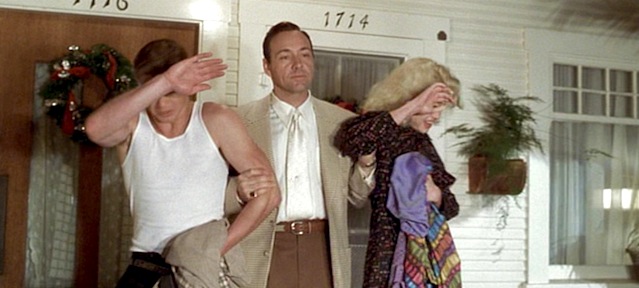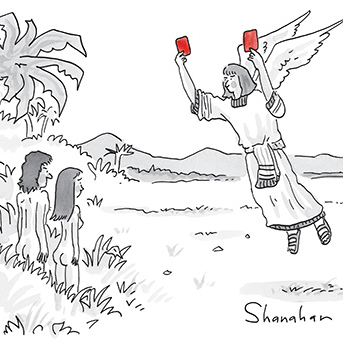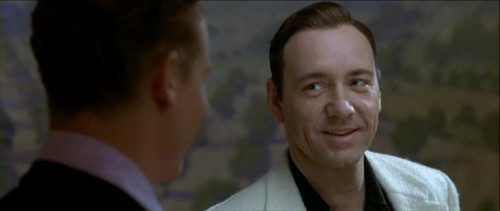
This is the transcript of a talk given over the weekend by Mbird’s Will McDavid at The Olmsted Salon in NYC, loosely based on our recent Eden and Afterward: A Mockingbird Guide to Genesis. For the audio, go to the Olmsted site here, and to order the book, go here.
 I first want to speak a little about why I wrote this book. I think the relative decline of the Christian religion among intellectuals has resulted in a few interesting consequences for the Bible. People now are relatively less likely to study the letters of Paul, in which he lays out much of what became the foundation of Christian doctrine, and that seems a mostly natural consequence to me. Less natural, perhaps, would be the fate of the Hebrew Scriptures, which long justly benefited, in terms of influence, from inclusion in the Christian canon. But perhaps they’ve unjustly suffered recently, from being yoked to Christianity in its long recession. When we look back now at Homer’s Iliad, and we don’t balk at the fact that the gods’ involvement drives so much of the narrative. Instead of asking “is it true or false?”, we ask, “what is compelling about the narrative? How does it resonate with my experience, and what can it tell me about reality?”
I first want to speak a little about why I wrote this book. I think the relative decline of the Christian religion among intellectuals has resulted in a few interesting consequences for the Bible. People now are relatively less likely to study the letters of Paul, in which he lays out much of what became the foundation of Christian doctrine, and that seems a mostly natural consequence to me. Less natural, perhaps, would be the fate of the Hebrew Scriptures, which long justly benefited, in terms of influence, from inclusion in the Christian canon. But perhaps they’ve unjustly suffered recently, from being yoked to Christianity in its long recession. When we look back now at Homer’s Iliad, and we don’t balk at the fact that the gods’ involvement drives so much of the narrative. Instead of asking “is it true or false?”, we ask, “what is compelling about the narrative? How does it resonate with my experience, and what can it tell me about reality?”
We have a safe enough distance from the Greeks to suspend disbelief, but the Bible, including the Hebrew Scriptures, still moves in a cloud of controversy, and we all have commitments for and against.
If the person against Christianity will think reading ancient Jewish literature irrelevant, or perhaps with a slight sense of the outside spectator’s curiosity, Christian readings tend to be distorted. When, for instance, we read the stories of Genesis, often in the Church we hear the implicit question, “what is this trying to teach me”? For an Aesop’s fable – say the tortoise and the hare – that’s a fine question: be patient and meticulous, do not grow overconfident, determination matters more than raw talent – and the list goes on. With any piece of narrative more complex, this question is inappropriate. What is Fyodor Dostoevsky trying to teach me in The Brothers Karamazov? I would suggest two reasons this is a bad question:
First, the truth is too complex to summarize. If I could write a pithy few sentences telling me the story’s meaning, there would have been no reason to waste the fifteen or so hours it takes to read it, let alone the years it took to write.
Second, and perhaps more fundamentally, we cannot distill all truths into logical propositions. Paul Cezanne once wrote that “You don’t paint souls, you paint bodies; and when the bodies are well-painted, dammit, the soul—if they have one—the soul shines through all over the place.” That is to say, the form of a story is not just another vehicle for carrying the content. The form and the content are indissolubly one. The only way to show a story’s soul is through a well-painted body.
When Christians read the biblical stories, they often try to short-cut to the story’s soul: what does this say about God, about Christian ethics, about faith? But if a story’s well-told, there is no need to go off looking for its soul, its moral. We need only look at the body, at the story itself, just as we would do with any other work of art… and the soul is there, in the thing itself.
So I believe we need a major change in the way we read biblical narratives, such as the stories in the book of Genesis. The Church has tied these stories so closely to faith that many people view them as a relic of three world religions, rather than as literature every bit as sophisticated and foundational to our world as the Greek myths. Within contemporary studies of literature, they have received less attention than they should. But in the Church, they have frequently received the wrong kind of attention. A third way here would be to read them as we would any other stories, with respect for their literary sophistication and attention to their particularities. I wrote this book primarily to model such an approach, ten essays in which I do my best to view them beyond the lenses of faith and suspicion, but instead through the lens of contemplation.
So that’s the basic method behind this book, and I hope it opens the door just a little toward a more nuanced appreciation of Genesis. I would like now to experiment with that approach, reading a story here, introducing some of its themes, and then discussing it.
I think a good place to start would be the Fall. For background, Genesis opens with the Jewish story of creation, when God divides the two waters (meaning the sky, which is blue, and the sea). The water, which was terrifying for ancient travelers, was a common symbol of chaos, and God creates a space of order in between them; chaos is held at bay. Then, God makes the waters recede, leaving solid land behind – now there’s air, earth, and sea. Aquatic animals, plants, birds, and land animals are all created in sequence, and then humans are last. The first two, according to the story, are given a paradisiacal garden in which to live, and there’s one restriction God places on them: they are told not to eat the fruit of a tree, which will confer knowledge of good and evil upon them.
When Soren Kierkegaard discusses the Fall, which he devotes a book to, he guesses at restlessness as a motive. If someone confined me to a mansion, in which I had everything I ever could have wanted, and said, “just don’t press that button over there, or you’ll lose all of this”, I wonder how long I could last. Maybe a few years, but the curiosity would keep growing. I don’t know about you all, but whenever I see a fire alarm, I’m always a little tempted to just pull it, especially if it’s in a nice place. If I ever did, everyone would think I was crazy, and I’d probably be prosecuted and get misdemeanor on my record, maybe even a year in jail. But if I’m passing one, and I’m alone, I sometimes have to stick my hand in my pocket – and walk faster.
The picking of the fruit has often been misinterpreted as a sexual thing. The Church Fathers often identified it as a vaguely sexual offense, or a disrespect for authority. It’s interesting, though, because when Adam and Eve put on fig leaves, the results of the Fall are, if anything, a setback for comfortable sex. And disrespect, or disobedience, is also perhaps a peripheral issue: it’s a little simplistic, a little psychologically shallow, a little bland. That feeling of wanting to pull the fire alarm, though, strikes me as a much deeper, and more interesting, issue. Maybe part of it is masochistic: I don’t feel like I deserve whatever peace and stability I have, and I want to do something to mess it all up. Or maybe a “grass is greener” thing, or a boredom thing. Or maybe it’s just a simple desire to do something. A desire for some sort of change. Wallace Stevens, in his poem “Sunday Morning”, takes issue with heaven, writing:
“Does ripe fruit never fall? Or do the boughs / Hang always heavy in that perfect sky?” Paradise can feel heavy. When things are going well, when we have nothing to feel concerned about, sometimes a stale emptiness sets in. Purposelessness: am I here just for this? Ripe fruit, just hanging on a tree indefinitely, without change. Stevens articulates so well this sclerotic peace.
So we do something to change it, to reassert purpose. This need to constantly be doing something is vocalized by the serpent in a curious promise: “you will be like God, knowing good and evil.”
As acclaimed journalist Chris Hedges observed in War Is a Force that Gives Us Meaning, life without conflict is boring. It feels more meaningful to fight an uphill battle than no battle at all, and Hedges might have titled his book, more broadly, “Progress Is a Force that Gives Us Meaning”.
The knowledge of god and evil makes the world more exciting, expanding our universe by giving us two poles which we move between, a spectrum on which we can place ourselves, evaluate ourselves, always move forward. Kierkegaard’s idea of restlessness resonates with me. And the promise that “you will be like God” appeals to this idea. In a talk on this story, Paul Walker, a preacher in Virginia, gave the following take:
What we call ‘the Fall’—the fall from paradise, the fall into a life and world of sin and death—is really a misnomer, I think… Instead of a fall, it is a grasping for something higher, symbolized in Eve’s reaching up for the fruit. We see not a fall, but a desire for a kind of spiritual ascendancy.
So many in the Church speak of the ideal of growing to be like God, but this story seems to suggest that the motivations behind this are, in fact, identical with the motives of Adam. Sin, in this story, is not sex, drugs, drunkenness, stinginess, or laziness… it is misguided spiritual ascendancy.
So turning back to the text itself, the result of this ascendancy is ‘Fall’. It is one of the early paradoxes of the Hebrew Scriptures, and it also makes its way into much of Western literature, that success sometimes breeds a deeper failure. We are given these heavy, inescapable selves, and when we try to improve our lot through our own means, we bind ourselves closer to ourselves. We become cut off, autarkic, “turned-in” on ourselves.
And we see this turning-in almost immediately. Adam and Eve each become ashamed to be naked, because they feel bad about what they’ve done. You know when a four or five year-old does something wrong, and they cover their eyes with a shirttail, thinking no one can see them? Adam and Eve are no longer comfortable being themselves, so they keep on with their supposed “ascendancy” by cloaking their true selves. I think it touches down in everyday life…
When I feel ashamed about something, rather than come out and admit it, I tend to dig in, prove to others that I’m just as good as I’ve ever been. In arguments with coworkers or friends, I’m usually most belligerent when I suspect I may be in the wrong. A professor named William Wilson, a brilliant lecturer on Genesis and other literature, has described the fig leaves vanity covering shame. We hide behind accomplishments, résumés, achievements. And I think it’s significant that Adam and Eve and making these clothes for themselves, because the hallmark of this covering-up is often that it feels like lots and lots of work. And it is.
And our disguises can inhibit love. In the book L.A. Confidential, later turned into a great movie, a sergeant, Jack Vincennes, has a dark secret: he killed two innocent people while he was on drugs in a shootout. After blaming their deaths on the criminals he had been trying to hit, he wins an award and is treated like a hero for courage and survival. Partly to assuage his inner guilt, he becomes a celebrity cop, developing ties with Hollywood, consulting on movies, getting access to exclusive parties, and racking up impressive, mostly fictional, stories about heroic acts of his as a cop.

He marries a woman from a rich, influential family by impressing her with those untrue stories. But their marriage goes stale, because he believes she does not love him – she loves his stories, which are untrue. While his image grows more and more impressive, the man languishes underneath. But then, one day, he’s debriefing after an injury and is under a heavy dose of painkillers. His wife, Karen, is in the room, and Jack spills everything, the fact his career is built on a lie, his history of addiction, the fact that he got away with killing two innocent people while under the influence. Everything she might have loved him for is a lie, and he comes home fretting about how much she heard, trying to resign himself to a probable separation. Waiting on the table is note telling him that she heard everything – and she doesn’t care. She’s bought two tickets to Hawaii, so that, as she says, they can get to know each other again.
This, I think, is a paradox at work in this story: the more Adam and Eve try to ascend, the more they fall. Their shame is so unbearable that, like Jack, they cover up. We see it, too, in the blame-shifting that goes on. God asks Adam why he ate the apple, and he replies, “the woman made me do it!” Again, it feels familiar. If your family runs into financial trouble or a child gets expelled or even something as everyday as being late to a party, we want to blame the other person. The story here seems to suggest that such blame-shifting flows out of a basic aversion to the idea we are guilty.
Wrapping up, there’s finally the element of the curse. They are expelled from Eden, a fitting consequence for their restlessness, and the curses of pain in childbirth and work make sense, too. Going back to the idea of war being more purposeful than peace, struggle more meaningful than rest… the idea of a curse seems outdated, and I think here it does seem like a punishment of sorts, but not an arbitrary one. There seems to be an internal logic: if Adam and Eve choose “ascendancy”, as we all do in whatever way – social, professional, you name it – then that is what they have chosen. The creation of life in childbirth, and its maintenance in food, comfort, and security – come at a cost. With the idea of the Fall as simple disobedience, we maybe miss the fact that the most well-behaved people can be unbearably full of their – selves. And it seems to imply that a “fix” for our problem of always needing to be moving forward, of always bolstering ourselves, is nearly impossible. For me, after a closer reading of this story, the takeaway is not a trite exhortation to be more obedient, but perhaps a call to recognize that toil – especially spiritual toil, or toil in the service of virtue – is our malaise, and there is not an easy way out. In the Greek myth of Sisyphus, Sisyphus is condemned to roll a huge stone up a hill, and when he almost reaches the top, it falls back down – over, and over, and over. When I first read the story, I wondered why he didn’t just stop, refuse to do it, switch things up. I can now see two reasons he might’ve kept on: first, perhaps he would have been bored – nothing else to do. And second, perhaps he really kept thinking he might make it next time.
I think that’s where this story places us, and given the context, it’s not surprising how dark things start to look. When Christians read this story, they often turn it into a moral – be more obedient, be more content – but these exhortations look a lot like a new tactic for rolling the same stone up the same old hill. I know I can’t rest while I place too much of my value into my work, into my popularity, into my progress… rest seems to require an act where we can find love independently of our labor. Or where the shame we’re trying to cover is exposed, forgiven – like Jack’s wife learning the truth, and scheduling a two-week trip for them to renew their marriage.
There are other ways to interpret this inexhaustible story, and we’re welcome to take other angles in the discussion time in a moment. I’ve just chosen the toil angle because it resonates with where I am now. I’ll just say that I think this story offers an account of what we feel has gone awry with human life, and one that I think gives the lie to much of the optimism and self-help which can be found in churches and bookstores alike.
Again, listen to the recording here and order the book here.

COMMENTS
3 responses to “A Reflection on the Fall, or Sisyphus vs. Jack Vincennes”
Leave a Reply















This kicked 39 different kinds of ass.
I love that Cezanne quote, thanks. As a dance fan – and specifically as a Balanchine and Cunningham fanatic – I immediately think of choreography as well. Movement itself is revelatory, regardless of whether or not it’s telling a story.